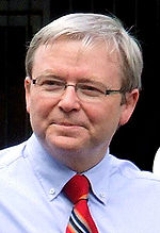
of cabinet
in the executive
branch of government
in a parliamentary system
. In many systems, the prime minister selects and may dismiss other members of the cabinet, and allocates posts to members within the government. In most systems, the prime minister is the presiding member and chairman of the cabinet. In a minority of systems, notably in semi-presidential system
s of government, a prime minister is the official who is appointed to manage the civil service
and execute the directives of the head of state
.
In parliamentary systems fashioned after the Westminster system
, the prime minister is the presiding and actual head of the government and head of the executive branch.
1739 War of Jenkins' Ear starts: British Prime Minister, Robert Walpole, reluctantly declares war on Spain.
1812 Prime Minister Spencer Perceval is assassinated by John Bellingham in the lobby of the House of Commons, London.
1852 Count Camillo Benso di Cavour becomes the prime minister of Piedmont-Sardinia, which soon expands to become Italy.
1867 The British North America Act of 1867 takes effect as the Constitution of Canada, creating the Canadian Confederation and the federal dominion of Canada; Sir John A. Macdonald is sworn in as the first Prime Minister of Canada.
1939 Siam is renamed to Thailand by Plaek Pibulsonggram, the country's third prime minister.
1939 Romanian Prime Minister Armand Calinescu is assassinated by ultranationalist members of the Iron Guard.
1940 World War II: Winston Churchill is appointed Prime Minister of the United Kingdom.
1942 Pierre Laval becomes Prime Minister of Vichy France.
1944 World War II: Hideki Tojo resigns as Prime Minister of Japan due to numerous setbacks in the war effort.
1945 An assassination attempt is made on Japan's prime minister, Kantaro Suzuki.

